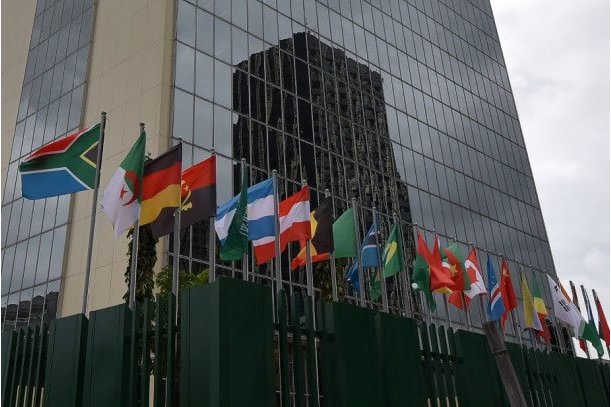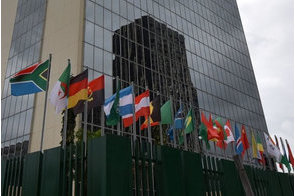Latest News
AfDB projects 3.6 per cent GDP growth for West Africa in 2019

News Highlight
AfDB urged West African countries to develop a dynamic industrial base with manufactured exports.
The African Development Bank (AfDB) has launched its 2019 Regional Economic Outlook (REO) for West Africa, alongside its annual flagship report, called Africa Economic Outlook (AEO). The AEO shows how Africa’s regional integration can spur structural transformation and foster economic prosperity on the continent.
The REO for West Africa provides a more granular comparative analysis from a sub-regional context. The report, launched in Abuja on Tuesday, projects a 3.6 per cent overall economic growth rate for West Africa in 2019 and 2020. Growth is expected to be boosted by the recovery of commodity prices and improvements in the production and services sector, despite persistent challenges and uneven performance of the economies.
The diversity of the West African economies is reflected in their per capita income, ranging from $452 in Niger to $3,678 in Cape Verde in 2018. According to the report, nine countries recorded at least 5 per cent growth in 2017 and 2018. Côte d’Ivoire and Ghana continue to be among the highest-performing economies with expected growth rates of 7 per cent and 7.3 per cent in 2019, respectively.
Nigeria, which recently came out of recession, recorded a GDP growth of 1.93 per cent in 2018. The AfDB noted that the largest economy in Africa continues to impact its neighbours and the economic performance of the region. It, therefore, urged all the countries to “develop a dynamic industrial base with manufactured exports.”
According to the report, countries under the West Africa Economic and Monetary Union (WAEMU) are cushioned from the harshest shocks of global climate on their domestic prices and enjoy relatively low-levels of inflation, while non-WAEMU countries continue to struggle with high inflation and rising external debt.
“West Africa could benefit immensely from many opportunities – such as diversification, infrastructure, development, and linking production to global value chains – which could offset the downside risks,” said Ebrima Faal, Senior Director for the Nigeria Country Department at the AfDB. “But seizing these opportunities will require conscious efforts by governments and policymakers at all levels to implement sound economic and structural policies.”
Speaking at the launch of the reports, Nigeria’s Finance Minister, Zainab Shamsuna Ahmed, said, “The process of diversification and infrastructure development requires massive and considerable finance, both from the private sector and development partners.”
She added that the government is committed to its partnership with the AfDB and other critical stakeholders that can provide innovative financing to support the country’s ambition for large-scale infrastructure development and economic diversification, both of which are critical to tackling the country’s endemic poverty and inequality.
The launch ceremony featured a debate and an interactive session involving businessmen, diplomats, development partners, academics and civil society. According to the AfDB, the level of engagement underscores the value of the reports to the discourse on regional integration and transformation for inclusive development.
The theme of the two reports – Africa Economic and Regional Economic Outlook for West Africa – also resonates with the ‘Integrate Africa’ High 5 Priorities of the AfDB. “An integrated Africa, and West Africa, in particular, is critical to the transformation of economies and sharing the benefits of growth (on the continent),” Faal said.
Related News
Latest Blogs
- AML/CFT regulations and data protection require balance in regulating cryptocurrency
- It's time for honest discussions on Nigeria's security architecture
- Driving economic growth through green transition in Nigeria
- CBN is fighting inflation instead of stagflation
- Why electricity privatization failed (2)
Most Popular News
- IFC, partners back Indorama in Nigeria with $1.25 billion for fertiliser export
- CBN increases capital requirements of banks, gives 24 months for compliance
- CBN settles backlog of foreign exchange obligations
- Univercells signs MoU with FG on biopharmaceutical development in Nigeria
- Ali Pate to deliver keynote speech at NDFF 2024 Conference
- NDFF 2024 Conference to boost Nigeria’s blue and green economies






